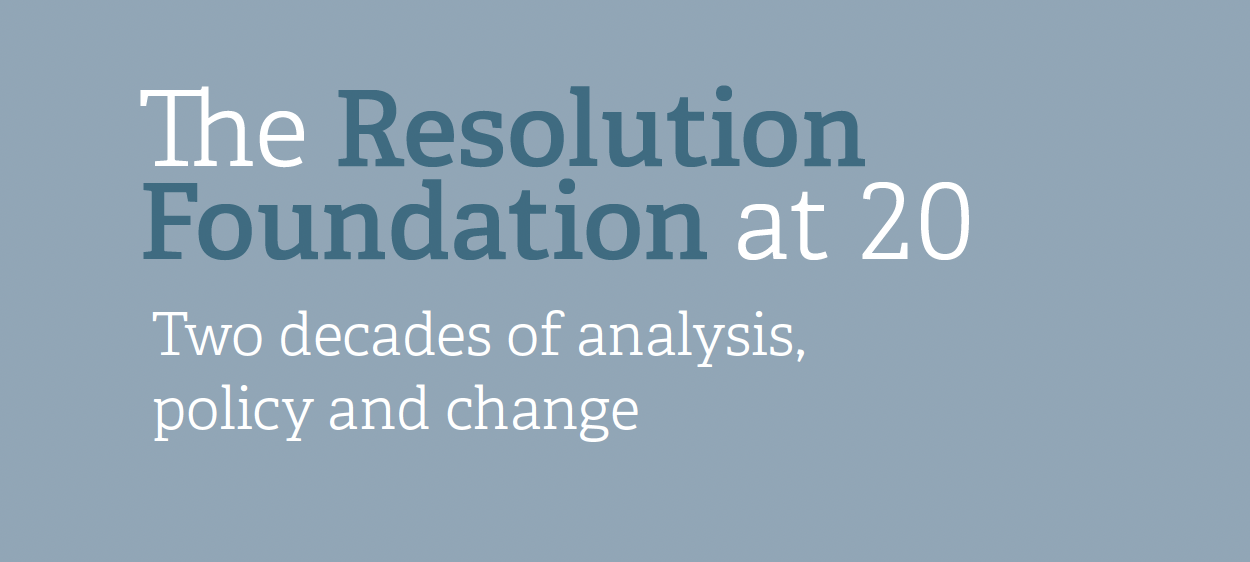The Resolution Foundation at 20
The Resolution Foundation was formed in 2005, in response to a growing gap between those whose income and assets had benefited from several decades of growth, in stark contrast to those left behind and struggling to make ends meet.


The fear that motivated our founding, was that there was forming in Britain – seemingly unnoticed by successive governments – a permanent ‘precariat’ of working people, forever excluded from gaining the security and rising prosperity that have been the promise of liberal democracy since the Second World War.
The poor have been with us always, but the Foundation was established with those in work but still struggling particularly in mind. As the new century dawned, successive governments had made progress on reducing worklessness but this brought in-work poverty to the fore. Work was, and still is, the most effective route out of poverty. But millions of families were learning that it was far from a guaranteed escape path.
In short, work was simply not working, as a route to safety and better living standards. I had spent much time in the United States from the 1980s and seen the brutal disregard of policy makers to tens of millions of working but struggling people. It was clear that merely through policy drift – not even as a result of deliberate choice – this indifference created an embedded group of people with lives of despair and anger. This is a tragedy for individuals (I know these people, and can see their faces as I write) but also stores up a storm socially and politically.
In contrast, I had personally experienced – as a grateful beneficiary during childhood – Britain’s more humane approach to helping those on the very margins. Since then, I have also been fortunate enough to have found work and opportunity that has enabled me to break out from this exposed group. But many millions have not, and so the founding mission for the Resolution Foundation in 2005 was very clear: Britain’s path should be to take the actions and Resolution Foundation at 20 Foreword pursue the policies now, to avoid the early concerning signs of entrenched relative disadvantage for families at the lower end of earnings and opportunity.
Our initial programme reflected this focus, starting with years of articulating – with our now famous penchant for charts and data – the challenges of the low paid. We targeted this at the public, the press, and politicians, seeking to act as an authoritative voice for low-paid and struggling families, but always rooted in rigorous research rather than emotional appeal.
It worked. Within a few years, the public and political discussion had shifted, with phrases such as “the left behind”, “the squeezed middle” or “just about managing” used interchangeably and frequently in press and political commentary. Our policy work in the early years was energetically focused on pay progression, with minimum wages an obvious target. The reduction in very low hourly paid wages – down from 22 per cent to just 3 per cent of employees today – is one outcome of such a focus, as is the landmark introduction of a National Living Wage in 2015.
We engaged on a number of other fronts – including childcare, and forensic work on how the tax and welfare systems operate for working people – and these saw gains. Some of these were incremental, such as making Universal Credit work better for working people, while others more vital, such as preventing major income losses from tax credit cuts.
Twenty years later, what are the challenges and prospects for living standards now, and how are we adapting our work in response?
Discover David Willetts' Work
Explore more of David's work and learn more about his professional career.

